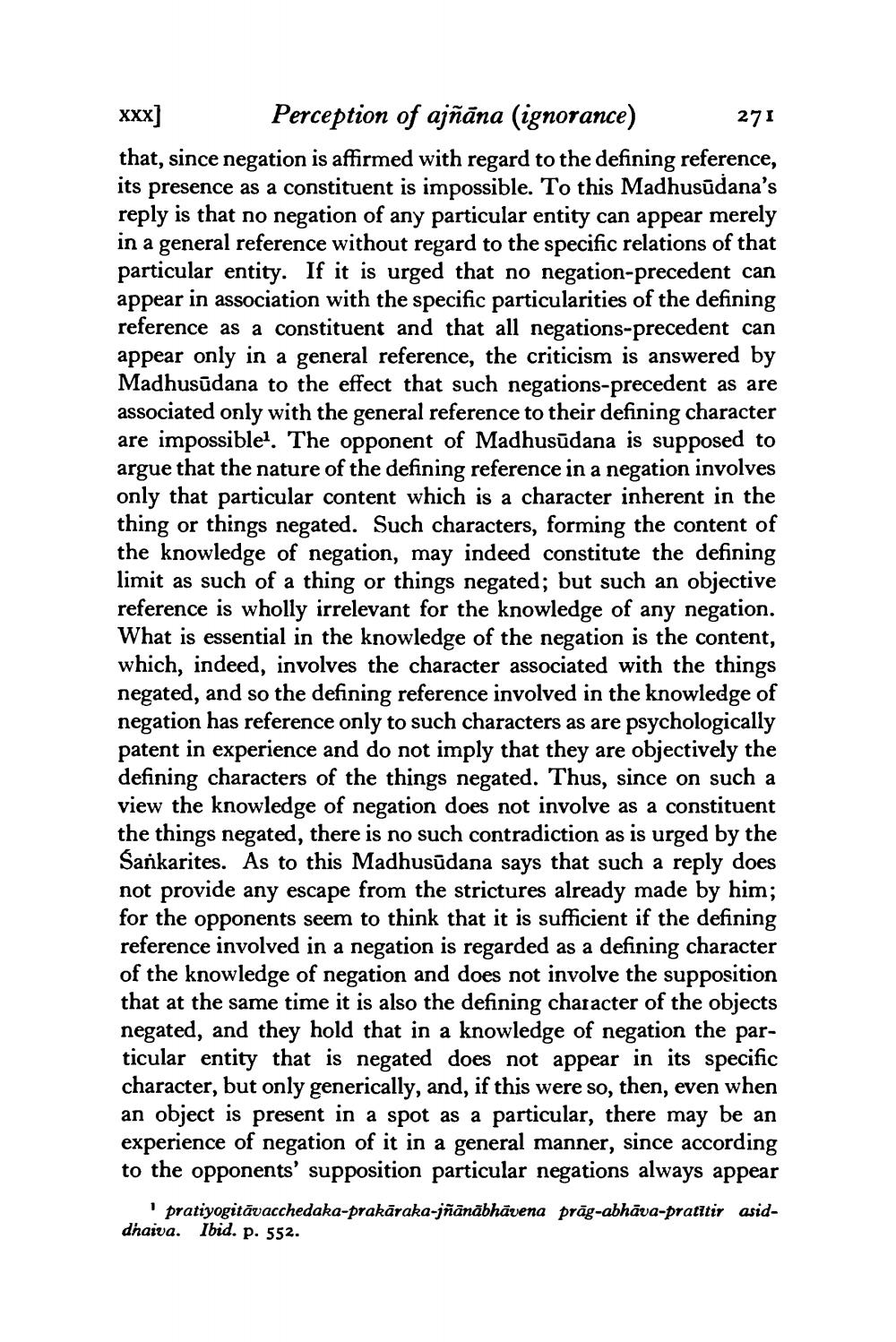________________
xxx] Perception of ajñāna (ignorance) 271 that, since negation is affirmed with regard to the defining reference, its presence as a constituent is impossible. To this Madhusūdana's reply is that no negation of any particular entity can appear merely in a general reference without regard to the specific relations of that particular entity. If it is urged that no negation-precedent can appear in association with the specific particularities of the defining reference as a constituent and that all negations-precedent can appear only in a general reference, the criticism is answered by Madhusūdana to the effect that such negations-precedent as are associated only with the general reference to their defining character are impossible. The opponent of Madhusūdana is supposed to argue that the nature of the defining reference in a negation involves only that particular content which is a character inherent in the thing or things negated. Such characters, forming the content of the knowledge of negation, may indeed constitute the defining limit as such of a thing or things negated; but such an objective reference is wholly irrelevant for the knowledge of any negation. What is essential in the knowledge of the negation is the content, which, indeed, involves the character associated with the things negated, and so the defining reference involved in the knowledge of negation has reference only to such characters as are psychologically patent in experience and do not imply that they are objectively the defining characters of the things negated. Thus, since on such a view the knowledge of negation does not involve as a constituent the things negated, there is no such contradiction as is urged by the Sankarites. As to this Madhusudana says that such a reply does not provide any escape from the strictures already made by him; for the opponents seem to think that it is sufficient if the defining reference involved in a negation is regarded as a defining character of the knowledge of negation and does not involve the supposition that at the same time it is also the defining character of the objects negated, and they hold that in a knowledge of negation the particular entity that is negated does not appear in its specific character, but only generically, and, if this were so, then, even when an object is present in a spot as a particular, there may be an experience of negation of it in a general manner, since according to the opponents' supposition particular negations always appear
pratiyogitāvacchedaka-prakāraka-jñānābhāvena prāg-abhāva-pratitir asiddhaiva. Ibid. p. 552.




